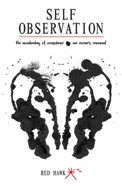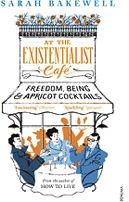The Science of Consciousness:
Chapter 6: Looking at our Own Minds
What this chapter is about: What can we tell by examining the contents of our own minds, and how reliable is the data we generate in this way?
What can we learn from introspection? What are the limitations on self-knowledge? This chapter also covers the unconscious, material outside of consciousness, includng the Freudian sense of material that is deliberately repressed to keep it from consciousness.
There is so much more I could have included in this chapter.
Phenomenology
The late British phiosopher was very scathing about henomenology in his 2009 book I drink therefore I am, saying:
"Like Russell Husserl began his philosophical career with an attempt to make sense of mathematics, and made nonsense of it. He went on to invent the science, or pseudo-science, of phenomenology, believing that there was a method whereby we could isolate what is essential in our mental contents by 'bracketing' the material world. The reams of inspissated prose ..."
While I thought along these lines before I started writing my book, I have come to realise that this verdict, while entertainingly written, is very harsh. There is something insightful to be gained about stripping away associations from percept and trying to see things "as they really are".
Jung and synchronicity
Do you ever think of a tune and put on the radio only to find that tune is playing? Do you ever dream of an old friend and they contact you the very next morning for the first time in years? In addition to his work on the Unconcious, Jung write about synchronicity, deeply meaningful coincidences that seem too significant to be dismissed as meere coincidence.
I think coincidences are an interesting topic, and it is revealing to see how reluctant many people are to dismiss them as chance events.
Plaskett, J. (2000). Coincidences. Tamworth Press. James Plaskett has been fascinated by extraordinary coincidences in his life, and has kept record of many of them. Described here they also constitute a fascinating, unorthodox, and strangely moving autobiography. By coincidence Plaskett is a chess grandmaster (chess being a very strong interest of mine).
Book reviews
Hawk, R. (2009). Self observation: The awakening of consciousness - an owner's manual. Hohm Press. ISBN: 978-1890772925.
This book was recommended to me as being in the tradition of Gurdjieff, in helping us to remember to wake up, becoming conscious of being conscious, an idea that continues to fascinate me. The book was much esoteric than I expected, and I'm sorry to say I didn't get much out of it. It has over a 100 5-star ratings on Amazon though, so maybe the failing is mine. It talks about honest self observation without judgement, and the way to meditate. Perhaps I'm just too much of a pessimist and materialist. I liked the poems though.
Bakewell, S. (2016). At the existentialist café: Freedom, being, and apricot cocktails. New York: Other Press. An excellent coverage of existentialism, focussed on Sartre. There is also an exceptionally good explanation of phenomenology, and a description of the life and work of Husserl and Heidegger. Having read it I had a much clearer idea of what phenomenology is - and how to do it.


